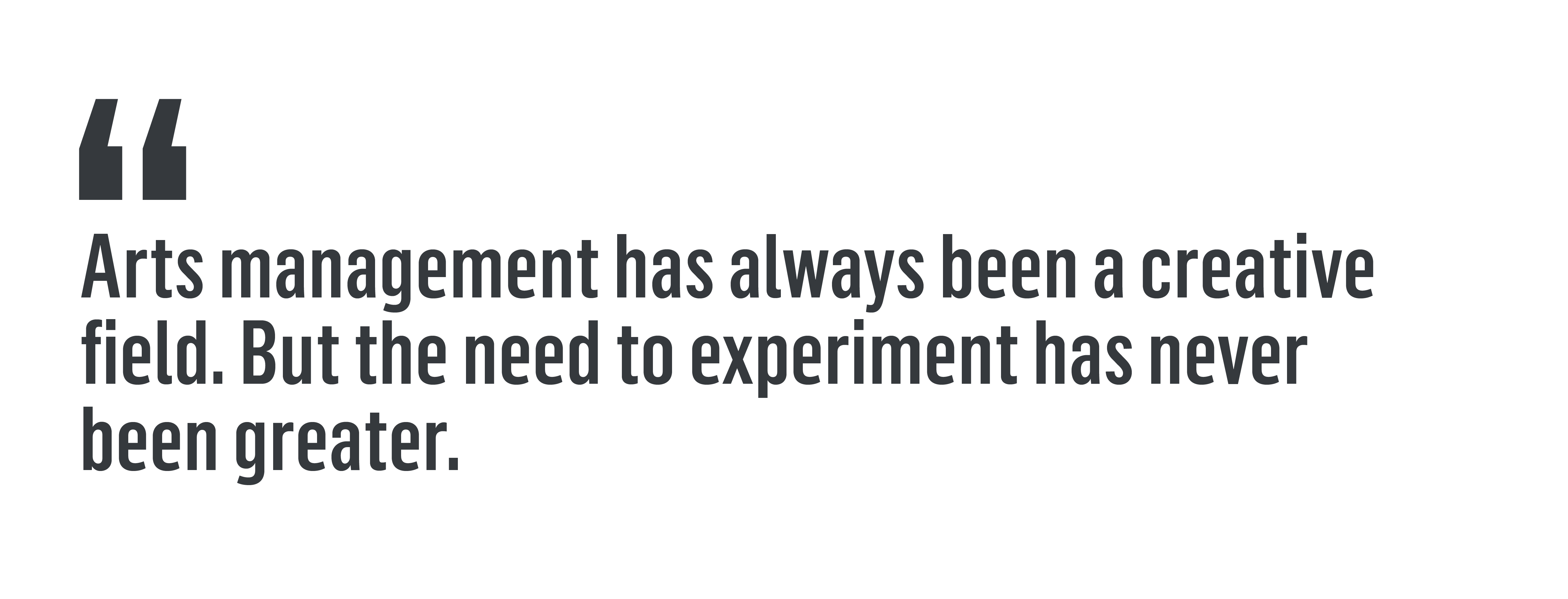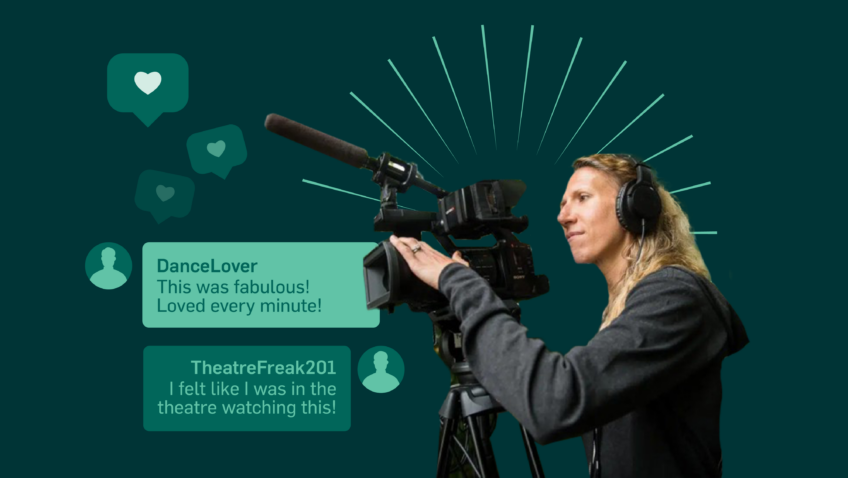Arts Leaders Need to Adapt
It has never been easy to run an arts organization. Since our dreams are always larger than our budgets, arts organizations almost always grow to the point where it is uncomfortable. I have never met an arts leader who believes they have enough resources to meet their needs.
We have always fretted about box office revenue and fundraising success. We have always looked to attract new audiences and donors. We have always prayed that an angel donor would fall in love with our work and allow us to make a quantum leap in artistic ambition and budget.
But it is harder today to run an arts organization because we have lost the luxury of predictability. We used to know which donors would be there for us. Most arts organizations had one or several families or foundations who gave, year in and year out. When we had a special event, they purchased a table. When we had a special campaign, they made the first, and often the biggest, gift.
We also knew how audience members got their information. We knew that if we advertised in the leading newspaper or on the major radio stations, sent a direct mail piece and placed some posters, we had a good chance of selling our tickets, at least for the most accessible works from our repertory. And we knew that most of our audience members would purchase a ticket at least one month before the event.
But we are now living in an era of transition and life is no longer as predictable. Many of our most loyal donors are aging out. Their children, who are often less interested in the arts than their parents, are steering family contributions elsewhere leaving big holes in our fundraising results. We do not only need to find new donors, but we also need to find new large donors who can make up the difference.
And, of course, people are getting their information in radically new ways and making purchasing decisions far closer to an event. Many fewer are willing to subscribe than in the past. In this transitionary time we have a hard time being certain which vehicles help sell the most tickets. The patterns of use of social media platforms, print publications and websites continue to change.
Even the nature of the art we are making is changing. From electronic art to pop-up opera, online happenings to multidisciplinary offerings, our artists are producing new and different and wonderfully exciting creations that render business-as-usual marketing and funding and management approaches less effective.
This rapid, dynamic and often confusing amalgam of changes has implications for the people who run our arts organizations. While there is much we have learned about arts management that continues to apply, arts leaders who were effective in the late twentieth century cannot simply draw from an old bag of tricks.

At the very least, we have to become experts in new technologies and develop new approaches to marketing our tickets, raising funds, reaching new audiences, and building boards.
But I do not think that is enough.
Because we are truly in a transitional period, we do not yet know who is going to give us money in the future, how our audiences will ultimately get their information, how artists will choose to make their work, or even what that work will look like.
Successful arts leaders must be willing to experiment.
Anyone who suggests they know exactly how to market arts events, for example, is not being truthful. Social media platforms are changing; Facebook was created for college students. College students have moved on.
Any arts leader who says ‘this is the way we market our tickets’ is being naive. Sticking to old approaches and tools is a sure path to fiscal distress.
Arts leaders have to try new tactics, measure what works, and adjust their strategies accordingly. It is not enough to experiment; like true scientists, we also need to analyze carefully the results of our experiments.

Arts leaders must also become nimble. And their boards must support this flexibility. There will be successes and there will be failures as we stumble towards a new paradigm for success. Boards typically like stability but this era does not allow for rigidity.
And arts leaders must learn to support artists who are experimenting with new ways to make art and new art forms themselves. I fully expect that the next twenty years will produce a dazzling new range of art. Arts leaders must be there to support this work; they cannot constrain artists because the new work does not fit old models.

Those of us who have been in the field for many decades can pass on what we have learned, but we need to appreciate that our knowledge is dated and, in many cases, not adequate to the task.
The arts has always been a creative field. But the need to experiment has never been greater.
Michael Kaiser the Chairman of the DeVos Institute of Arts Management. He is the keynote speaker at Digital Marketing Boot Camp for the Arts 2019.









